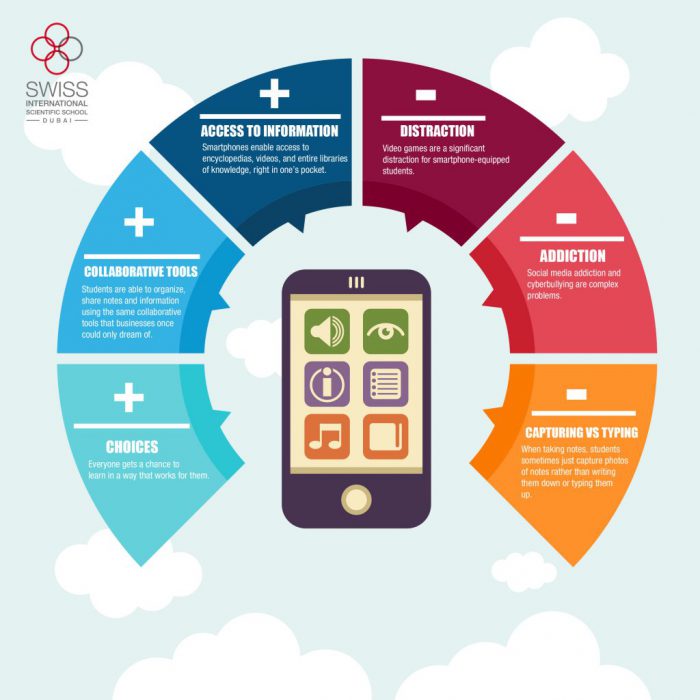If you find yourself constantly checking your phone when you feel bored or anxious, you may be one of the billions of people suffering from Nomophobia. Nomophobia is a fancy term for “cell phone addiction” or “fear of being without a mobile phone.” This is often fueled by the overuse of internet through social media. Although smartphones can be a productive tool allowing us to do almost anything from the palm of our hand, any addiction comes with a variety of side effects. These can include issues with concentration and self-control, as well as interference with one’s relationships, social interactions and a mixture of both positive and negative effects on one’s brain.
According to a recent study, 60% of college students consider themselves to have a cell phone addiction.
IU sophomore Gabby Leveillee knows she has a smartphone addiction, admitting she checks her phone up to 200 times a day. Leveillee says that she uses her phone as a distraction to deal with her social anxiety issues. Another recent study revealed that premorbid problems in social communication, such as social anxiety, phobia, and feelings of loneliness, can make individuals vulnerable to smartphone addiction. Leveillee says she spends most of her day checking her phone because she is scared she is missing out on something . While Leveillee knows she is obsessed with her phone, she talks about how smart phones affect her generation.
The obsessive use of smartphones has been compared to other addictions such as gambling, drugs and credit card misuse for compulsive buying. Many users also become addicted to social media, which experts say can have harmful effects, actually fueling social anxiety. These effects also include impaired self-esteem, work performance, and interpersonal conflicts. The average user in the US spends about five hours a day on smartphone activities such as texting, social media use, internet and phone calls. Overall, at least half of the time spent on smartphones is used on social media apps such as Facebook, YouTube and Instagram. This chart below shows the most popular apps in June 2017.
Experts say the social media engagement and constant communication leads to an increase in dopamine which offers stress relief to the body. The more responses or ‘likes’ a person receives can be a form of instant but fleeting validation.
Smartphones may be a reliable resource for staying connected and organized, but the distraction can disrupt communication at the dinner table or in the classroom. In some countries, students are encouraged to bring their devices to class for learning, while in other countries the debate of banning cell phones in school lingers. While there is no sufficient evidence of smartphones affecting the grades of students when present in the classroom, a survey conducted by Educause Learning Environment Preferences noted that students prefer to use technology to learn and that 54% of students often use two devices at once for completing school work. When entering any college classroom, you are likely to see more students with a laptop or phone on their desk, rather than a notebook. Many teachers and professors have tried to enforce rules to keep cell phones and laptop use to a minimum during class time, believing that they are a distraction. The graph below displays some of the pros and cons of using cell phones in the classroom.
Lesa Major says she has been a professor at IU long enough to see the changes of smartphones and laptops within her own classrooms. At first, she had no policy about cell phones in class but changed to a no cellphone policy after noticing how distracted students were. Major says students should be adult enough to make the decision themselves so she remains open to revising her policy. She talks about the changes and the differences she has seen over her years as a professor at IU.
HelpGuide.org has a list of symptoms, tips, and treatment options for those who may be suffering with device addiction.
Smartphone phone addiction is real and the first step is recognizing your problem. When your eyes are locked to a screen most of the day, you tend to miss out on the environment around you. You may be scared to miss out on the next big scandal on twitter if not constantly refreshing the page, but other things in life can be more important. There are a variety of ways reduce your smartphone use such as using a blocker app or changing your password for the weekend. Go to the PyschCentral website for tips and suggestions on taking control of your addiction.



